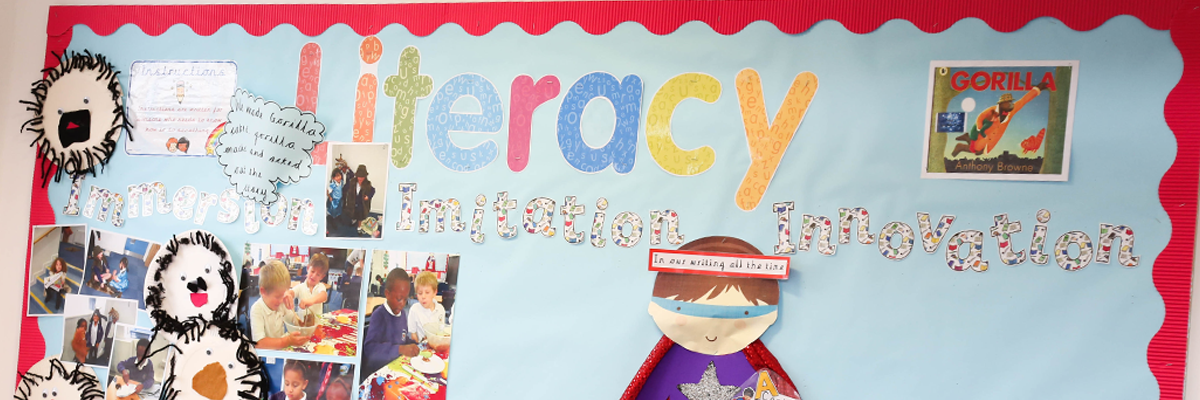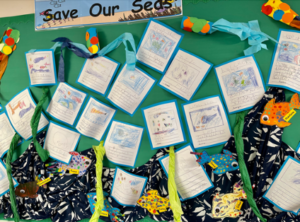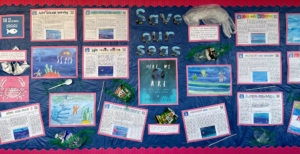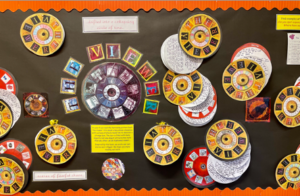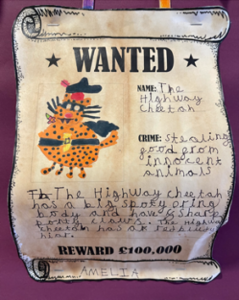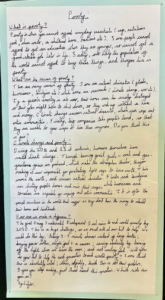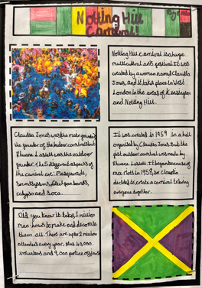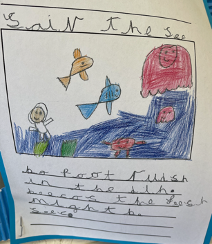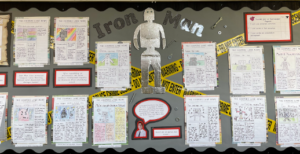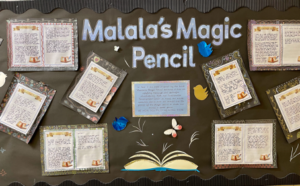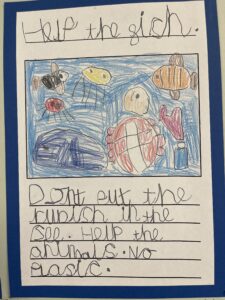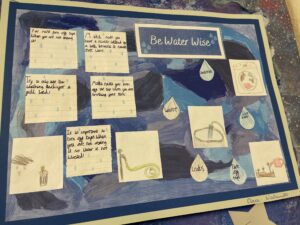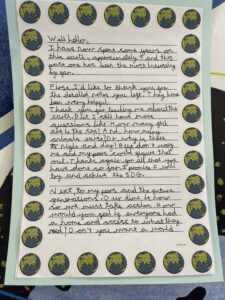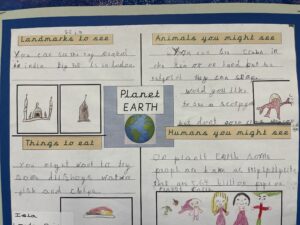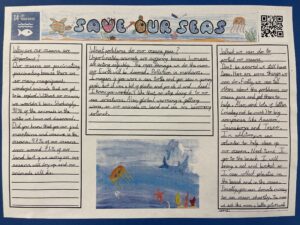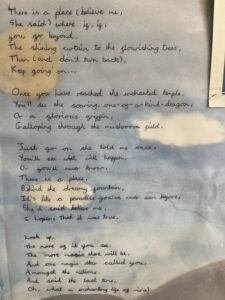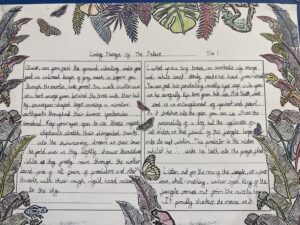English
“If you just communicate, you can get by. But if you communicate skillfully, you can create miracles.”
― Jim Rohn
At Coopers Lane, we begin our journey as readers and writers by first becoming confident speakers and responsive listeners. From the moment we start school, we are encouraged to share our ideas, listen to our friends and grow our imaginations together, exploring the wonder and magic in our provision through child-initiated play, including in our Water World, Story Time and the Builder’s Yard. The adults in our classrooms adventure with us through our play, planting vocabulary seeds amongst our chatter and encouraging us to ask questions of each other and our world. We know that our ideas are valued and we are eager to share them; we see very quickly that the more we listen, and the more we speak, the more we learn. We are storytellers before we even put pencil to paper!
As we progress through the school, we take part in daily activities that help us to further develop and apply our speaking and listening skills. From Reception upwards, we have the opportunity to perform at least twice a year to an audience, through our show-stopping Christmas performances and our wonderful class assemblies, which are informative and celebrate all that we have learnt. Role-play and drama activities play an essential part in our learning journey, with some being teacher facilitated and some child led; we use these to explore lots of different topics and themes, both inside our classrooms and in the outside areas.
“The more that you read, the more things you will know. The more that you learn, the more places you’ll go.”
― Dr Seuss
Reading
Our classrooms are treasure troves filled with a selection of beautiful books and this is where our love of reading is nurtured as we move through school. As readers, you will find us happily diving into stories, new and familiar, and our adults are there to read with us, read to us and to help us find our favourite genres and characters. We also visit our school library once a week and enjoy browsing the shelves that are brimming with books; books that have been donated to our school, books that have been chosen by our teachers and, most recently, books that have been chosen by us and purchased by our wonderful families to keep us stocked with texts that really ignite our interests.
Our shared books have been carefully selected to celebrate and embrace our differences. Throughout our journey at Coopers Lane, we will see ourselves in the stories that we read. Our Love to Listen sessions at the end of every day are magical opportunities for immersing ourselves in the lives of different families, helping us to be respectfully curious about the world lived by people from different races and ethnicities, backgrounds and cultures, as well as understanding and celebrating neurodiversity and disability. We also learn about the many beautiful forms that “family” can take for children of the world, including our own school community: different families, same love.
More detail on how we teach Reading can be found here.
Phonics
At Coopers Lane, we know that the use of phonics is crucial in the teaching of early reading and writing. We use ‘Floppy’s Phonics’, which is a systematic synthetic phonics programme.
The programme is delivered in two distinct sessions:
- Session 1 is a teacher-led session focusing on revision of past letter/s-sound correspondences and the introduction of sounds and graphemes, as well as modelling and practicing the skills of blending, segmenting and handwriting, using a range of interactive resources.
- Session 2 provides a revise-and-apply routine in which the children focus on their own learning at their own level, using the Say the Sounds Posters, Sounds Books, Activity Sheets or Activity Books and Cumulative Texts, with the teacher drawing the attention of the whole class together as needed.
The second session can take place later in the day or the next day, or as an immediate follow-on. Each sound is also linked to a Sounds reading book, which is used to support the new learning. Some words, which cannot be phonetically sounded out, are taught at each stage. These are ‘helpful words’ and are taught through sight recognition.
Writing
When you walk into a Writing lesson at Coopers Lane, you will see enthusiastic authors and illustrators hard at work; love for the creative process of writing oozes out of us and we show immense respect for each other and our projects. In Early Years, our provision encourages us to be mark makers, and to use our phonics to label our illustrations and write our first sentences. We tell stories orally and learn that writing our ideas down helps us share them with others. As we move into Year One, we become members of Drawing Club and we focus on using our power codes to support our writing; we challenge ourselves to use the most powerful code, sometimes even our super blaster code!
As we move through school, our reading and writing journeys are inextricably intertwined, with our teachers carefully crafting wonderful writing units based on high quality texts from a range of authors and genres. Before we are asked to write, we are inspired. We are immersed in our chosen text slowly; wepore over the pages and illustrations, saturating ourselves with shared thoughts about the characters, settings and storylines, and absorbing all of the rich vocabulary. When we start to write, we are ready; we have a toolkit of skills that we have been taught, and we feel confident to choose when to use them. You will see us showing responsibility as we become authors and illustrators ourselves, taking pride in our writing. As we become more accomplished writers, we also use perseverance as we draft and redraft our work to skilfully build our final pieces.
More detail on how we teach Writing can be found here.
At Coopers Lane, English is a magical forest. Strong communication skills are the trunk of the trees, helping us to grow strong and tall. Each new element that we learn – from our phonics to our handwriting to our sentence building – adds leaves to the tree and builds upon something that we have learnt before. The more that we learn, the more our tree flourishes, and together we create a wonderful woodland, full of intrigue and adventure.

